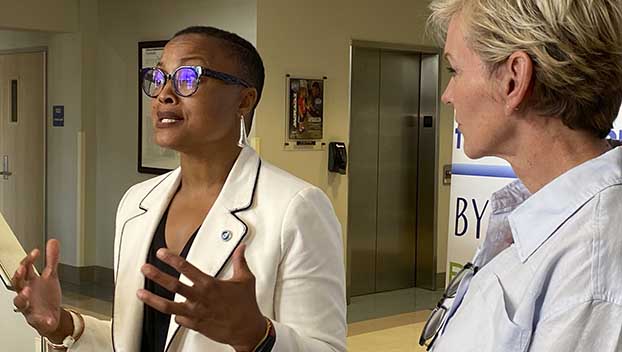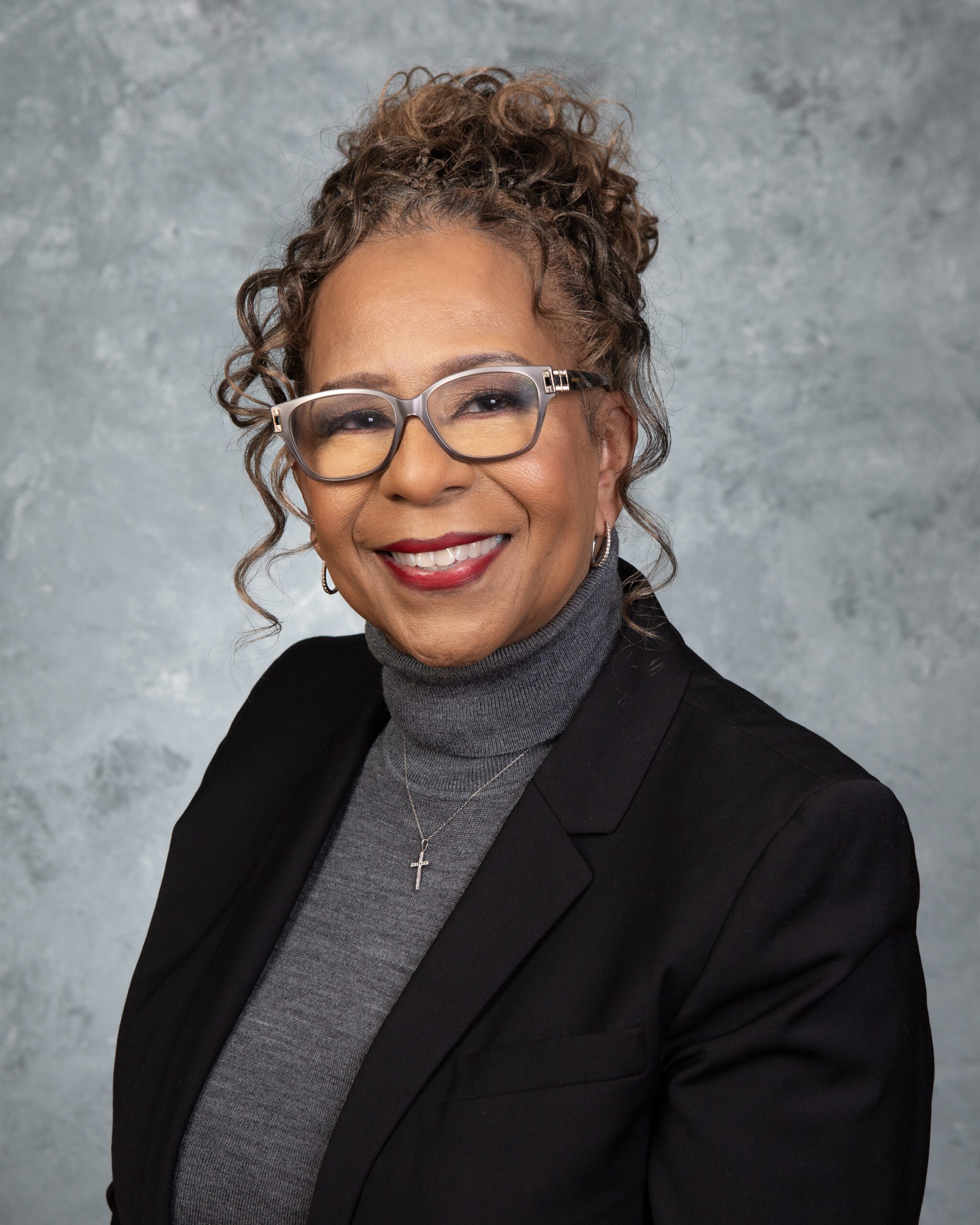MONIQUE BATSON – Breaking down the purpose of the Energy Justice to the People Roadshow
Published 12:34 am Saturday, June 17, 2023

- From left: Shalanda Baker, Director of the Office of Economic Impact and Diversity, discusses her roots in Port Arthur. (Monique Batson/The News)
|
Getting your Trinity Audio player ready...
|
The second floor of the Carl A. Parker Multipurpose Center was filled this week with people attending the Energy Justice to the People Roadshow.
Elected officials from Port Arthur and beyond joined local leaders, industry representatives and community members as the Department of Energy explained a multitude of topics from federal funding, the future of energy, and how Southeast Texas transitions to a future of clean energy.
Some understood all that was said; others did not.
I’ll be the first to say I fall among the latter. As a journalist, I often say I know a lot about a little and a little about a lot. Despite being raised in Southeast Texas, my knowledge of the industry around us is limited. And to be honest, I didn’t fully comprehend what was around me until the TPC Group explosion in 2019. The facility is located less than one mile from my house.
But also as a journalist, I cannot inform the public of what I don’t fully understand. And when I do, I prefer everyone else to comprehend it, as well.
What was the purpose of the Energy Justice to the People Roadshow?
The DOE has been and will continue traveling to communities along the Gulf Coast to discuss programs such as the Justice40 Initiative and the Inflation Reduction Act.
John Beard, CEO of Port Arthur Community Action Network (PACAN), said Tuesday’s meeting in Port Arthur began two years ago in Scotland, when he first met U.S. Department of Energy Secretary Jennifer Granholm.
“I asked her some questions and I made, as I always do, the request, which is, ‘I’d like for you to come to Port Arthur?’” he said.
Later, the two reconnected in Houston and he made the same request.
“I like to tell the story that when we did that, she saw my name tag and said, ‘You are persistent.’ And I said, ‘Yes, I am and I’m going to be persistent until I get you here,’” Beard said.
Beard worked in the petrochemical industry for decades. In 2019, he formed PACAN with the intention of advocating for environmental safety.
“Port Arthur, specifically, and Southeast Texas in general needs to look towards the energy transition in order to clean up the environment from the industrial pollution of 100 years of the petrochemical industry being here,” he said. “We’re not going to get out of petrochemicals right away. So we have to have a transition that is clean, green and renewable that leaves no one behind; that creates jobs and opportunities for all; and that provides a future for our children and other generations.
“There’s only one planet, and that’s this one. We have to protect and provide, not only for ourselves now but for the future. And the programs that the DOE through the Secretary of Energy has brought here are going to help us do that.”
What is the Justice40 Initiative?
According to the Department of Energy, during his first week in office, President Joe Biden established the Justice40 Initiative “which directs 40 percent of the overall benefits of certain federal investments – including investments in clean energy and energy efficiency; clean transit; affordable and sustainable housing; training and workforce development; the remediation and reduction of legacy pollution; and the development of clean water infrastructure – to flow to disadvantaged communities.”
Through the initiative, the DOE is working with disadvantaged communities to address and relieve issues created by fossil dependence, energy burden, environmental and climate hazards and socio-economic vulnerabilities.
DOE Secretary Jennifer Granholm and Director of the Office of Economic Impact and Diversity Shalanda Baker were in attendance Tuesday to address their purpose in Port Arthur.
“We’re here because Port Arthur is special,” Baker said. “You can look out of the window and see just how special it is in terms of the…volume and high number of petrochemical facilities and gas facilities in this community. We know that communities have raised their families deriving benefits from many of the…refineries in this community.”
Baker said the DOE has $100 billion dedicated to climate emergency and transitioning to a clean energy future.
“We are committed to having conversations with communities as we transition away from fossil fuels into a clean energy future,” Baker said.
In order to apply for funding, applicants have to put together a community benefits plan, Baker said.
“The community benefits plan framework is specifically designed to bring stakeholders to the table so they have to talk about how they’re going to engage stakeholders, what is their stakeholder engagement plan? Two, how they’re going to actually bring benefits to what are called disadvantaged communities? They also have to have a plan for jobs, and we’re hopeful that they’ll have a plan for how to make a workforce agreement and a community agreement. So that’s one way that we’re trying to tackle this legacy of harm that we know exists based on the literature and the stories that we heard.”
Monique Batson is Port Arthur Newsmedia editor. She can be reached at monique.batson@panews.com.





